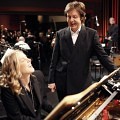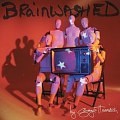- From Faith Current: “The Sacred Ordinary: St. Peter’s Church Hall” - May 1, 2023
- A brief (?) hiatus - April 22, 2023
- Something Happened - March 6, 2023
In catching up on recent comments, I ran across a couple that suggested Hey Dullblog judges Paul McCartney more harshly than it does the other Beatles; and one of the persistent conversations here for the last couple years is an anti-Paul bias in the media (I suppose we are part of the media?). Why doesn’t Paul get his due? commenters ask. Is it because he’s been coded as feminine? Is it because he traditionally appealed to female Beatles fans? Is it misguided post-murder worship of Lennon? Is it Jann Wenner’s Rolling Stone vendetta hardening into a permanent attitude?

I don’t think there are any definitive answers to this question; sometimes I’m not even sure that it’s a valid question. In this era of so-called “cancel culture,” has Paul McCartney really been ill-treated? And could we tell if he had been? Feeling aggrieved is one of fandom’s enduring pleasures—”Jaco Pastorius has never gotten his due as a bassist!”—that’s fine, and part of the fun. But in a time when nobody agrees on anything, we all pretty much agree that Paul McCartney is a genius.
In terms of popular culture, Paul’s influence has diminished steadily since 1980—the possibility of a Beatles reunion did so much to keep all four current, and when that hope was dashed, popular music really did move on. This recession has only accelerated since the turn of the century, but that’s perhaps a mercy: could we really have survived another forty years of Macca front and center? Could he? And it should be noted that Paul’s fate has been shared by most of his contemporaries; who talks about Clapton these days? One-time giants like Dylan and Keith Richards only make news now when they release a memoir. The 60s/70s music that has achieved a recent renaissance—Queen, Elton John—is a side-effect from popular movies. That doesn’t work with The Beatles; no movie is bigger than the group itself.
Nancy and I are the only people posting here super-regularly, and both of us are definite Macca fans. I can’t speak for Nancy, but I listen to Wings literally all the time, from “Another Day” to “Goodnight Tonight.” My interest trails off after about 1980, but that’s about me, not Paul. I’m interested in The Beatles so much more than John, Paul, George or Ringo; the solo work only fascinates me in light of the Beatles phenomenon.
And let’s be honest: after 1980, there is simply no controversy. After the tragic sudden death of his foil, Paul’s story becomes one of a productive, avuncular, celebrated Englishman seemingly contented in both life and work. There are few public outbursts, no controversial opinions. Since 1980, Paul’s simply a difficult guy to write about. There’s no obvious drama — only music.
Paul’s music comes in for more critique because there’s so much of it. Paul’s body of work dwarves that of any other Beatle; he’s already released more studio albums than Lennon and Harrison combined. And unlike his Beatles bandmates, each of whom found their post-Beatles style quickly and didn’t stray from that for the rest of their careers, Paul has made a career out of wiggling to and fro, embarking on stylistic experiments and collaborations. So he has hits and misses. It isn’t all glitter and gold.
Blogs like this run on opinions; and they only really hum if there’s well-reasoned disagreement. Hey Dullblog has gone increasingly quiet in these last couple years because there’s little to no new Beatles content to talk about. Eleven years on, I just don’t have a lot of unexpressed opinions about John, Paul, George and Ringo…and the ones left are usually vinegary takes on John’s Dakota years, or Paul’s possible codependence, or George’s weirdly bipolar saint-sinner act through the 70s. These are each juicy in their way, but not much fun to write or think about, especially compared to what I love: the miracle that was The Beatles and their era.
So what does that leave us with? Paul’s new album. Paul’s appearance on Carpool Karaoke. And Paul’s geniusness. Hymns of praise make for boring reading, so he gets critique. But never unkindly, and always keeping in mind his past accomplishments—which put him far beyond the reach of any critic. As he always will be.













Amen, Michael.
And a genius–or at least insanely talented–in so many ways. As a songwriter (both melody and lyrics –undisputed except by grumps), bassist (the skill, at least at one point, he rated himself highest in), singer, harmony singer, co-producer with Martin, guitar player (Taxman solo), entertainer, diplomat, interviewee, gracious person. He’s a staggering talent and amazing person.
I’ll add that in addition, when you combine age with Paul’s natural instinct not to rub people the wrong way, and you don’t have a lot that’s going to generate new material for people to talk about.
Now, what if Paul wrote a memoir? Not an addict’s self-aggrandizement like Keith Richards’ “Life,” or something deliberately evasive like Dylan’s “Chronicles,” but a book where Paul goes, hey, I’m going to die someday, and I’m the only person left who really knows what all of this was like and decides to tell us about 1/10th of everything he experienced. What John said when he was fucked up on pills. What it was like when Yoko showed up. What it was like to go from being George Harrison’s friend to whatever their relationship was after 1964. Heather Mills.
Your article indeed well expresses the limitations of a blog devoted mainly to the Beatles as a group. Great as they were, they existed only a limited number of years. Good as some of other solo Beatles music was other than macca, they were style restricted and all retired but came back. Thus, solo John and George restricted their solo output. Paul zigzagged in genres all over the board and still does.
Being my age and a young teen in early seventies, I had friends who like solo Beatles but not Beatles as a group and a college roommate who wouldn’t listen to solo Beatles. It has taken decades for Paul to finally be acknowledged as a musical musical genius, all the John and George rock press and biographers had to retire and his solo catalogue be re-evaluated.
Since I have retired, I have found available a staggering amount of his bootlegs and outtakes from early solo available online and have found his unknown recent experimentalism like 222, Diana Krall song he wrote for her, fireman, electric argument and reef. When a young teen I remember the same arguments being raised, should an independently run Beatles fan club focus on solo?
Listening to macca of last twenty years online, I have discovered his mature stage music but so glad I kept up with him solo 70s-90s, as not even courting my favorite seventies Beatles solo and Macca decade, I discovered via bootlegs, great unreleased eighties techno and electronica, nineties Cajun and ethnic, rock n roll classics and
70s-90s great reggae, not counting award winning side projects. It is not just because macca has lived longer but because he was always so highly prolific, as a teen heard 2-3 tunes in his head. Bootlegs shows him doing his, traditional songs in many different styles. I am so very glad saw him in concert in 70s, late 80s and 90s.
My online efforts to catch up with macca music and to see long forgotten or unseen Beatles videos caused me to
stumble into what this blog dismisses as conspiracies but is an all out TARGETED HATE campaign by alt righters and Nazis well orchestrated and funded by corrupt corporations to erase Beatle history, rewrite it, diminish their legacy and Paul, with long string of Jewish wives girlfriends, employees, tour of Israel, award from Israel and proudly claimed as Jewish Beatle and many liberal causes highly unpopular to corporations…like save the planet…he’s in save the artic, animal right, vegetarianism, amnesty, anti bullying have caused monied corporate backers to orchestrate and pay these PID and Beatles centered right wing conspiracies shill trolls. I researched this as extensive effort for group that broke up fifty years ago and elderly rock singer entertainer. Such an intensive propaganda campaign by righters is usually reserved for a contemporary politician or a generalized minority.
We as Beatles or Beatles and solo fans are very lucky to still have two survivor elderly members staying in the business, as we lost two young. I made a point to see solo Beatles many as only was able and twice was able to see them in my local city. Runners of tge blog have to decide what they want to emphasize, Beatles or solo or Beatles and solo type articles, but my own choice is to enjoy them while they live, enjoy group and solo music but I personally found the music of other solo Beatles much more restricted and recycled than Paul’s. Working, I had lost track of Paul music in last twenty years though had heard a good bit of it. It was a delight to catch up and a greater delight to find his staggering bootlegs and outtakes and amazed learn the man still has 278 unreleased songs.
I was very curious about the extreme and extensive anti Paul and anti Beatles propaganda war, as group long gone, their influence waning and Paul an old entertainer who evolved but stayed in the business until I found the unholy marriage of fascists and greedy politicians and corporations in their war not just against Beatles as emblematic of a liberal decade but against the liberal social gains and progress.
Merry Christmas Michael!
I’ve tried to read every post here, going back through the years. I’ve NEVER felt there was a bias against Paul. I think most of the writers here have tried to treat all the Beatles fairly.
There definitely was a bias in the mainstream media after The Beatles broke up, and for many years after.
Now however, most articles about Paul treat him very reverently. He is adored! Look at the success of the Grammy winning “Carpool Karaoke” with him.
John became a legend and martyr due to his death.
Paul McCartney has lived and thrived and made mistakes, but is still creating and touring at 76!
It’s pretty amazing!
After all, Bob Dylan in Rolling Stone some years ago remarked, that the only person he admired and somewhat envied was Paul McCartney.
Oops! I meant Emmy, not Grammy.
.
Surely there’s still some meat on that bone to pick on. His second marriage. I remember all the fun the tabloids had at the time with the divorce proceedings.
Heather Mills complained about Paul’s cannabis use. She’d come home and smell smoke! Some humorist (I don’t remember who; was it someone at Spy Magazine?) compiled a list of every favorable thing Paul ever said about marijuana, and concluded Ms. Mills was the only person in the world who had no idea Paul was a pot smoker.
As not fun to write or think about as they are, may I simply say I came to Hey Dullblog because it was a place that wasn’t afraid to offer stuff like “vinegary takes on John’s Dakota years, or Paul’s possible codependence, or George’s weirdly bipolar saint-sinner act through the 70s.” We think about The Beatles a little too much — all parts of them. If it may spark discussion, and you can bring yourself to do so, write about it! We’ll be here.
Over the years I’ve been writing for HD (nine, I realized), I feel I’ve canvassed McCartney pretty thoroughly. And I do feel he’s getting his due now, critically; people aren’t overlooking his faults and missteps — as they shouldn’t — but his best work is also getting more recognition.
.
Because McCartney is one of those artists who is compulsively prolific, his work is wildly uneven. I’ve made the comparison to Dickens on this blog before, but here’s a more contemporary example: Stephen King. When King is good, I think he’s great (and often underrated by serious literary types). And when he’s not good, he’s really not good. But the best work is what ends up mattering, and being remembered.
.
I also think McCartney has used his live shows of the last decade or so to broker a peace with his past. He’s criticized for being predictable in performance, and that’s fair to a point. But the structure of the show, I think, gives him the comfort to deal with emotion in a way that isn’t overwhelming. So every show by him that I have seen has included:
.
* A number of songs from the period when The Beatles weren’t performing live anymore
* A performance of “Here Today” prefaced by an explanation of its origin in his conflict with Lennon and an exhortation for people to talk to each other while they can
* A performance of “Something” with an acknowledgement of his conflict with George and their eventual reconciliation
*A song dedicated to Linda (“Maybe I’m Amazed” or “My Love”)
* A really old song (“In Spite Of All The Danger,” “I Lost My Little Girl,” etc.)
* Some really new songs (from his latest album), often with a wry acknowledgement that he can tell those aren’t the audience’s favorites
.
His shows deliberately cover the whole span of his career and include references to three important people in his life who have died. They allow him to reclaim his role in The Beatles’ music and assert that he hasn’t given up being creative. And doing all this in sold-out stadiums is, I’m sure, a powerful salve to compensate for the critical drubbing he received earlier in his career.
.
I think McCartney is as at peace as he can be now, and it’s a great thing to see.
.
I think McCartney is as at peace as he can be now, and it’s a great thing to see.
What’s wonderful is that it’s happening in real time, while we speak. I’m so used to seeing all things Beatles in historical terms. But Paul is here today. It’s fun to witness.
It reminds me of when John was still around, and someone would ask me “Hey, did you see Lennon on Carson last night?” Or when I’d come home from school and see him co-hosting the Mike Douglas show.
I loved Egypt Station and I find it extraordinary that at the very moment I’m typing this, Paul may be laying down tracks in a studio somewhere. In the futuristic, almost sci-fi year of 2019-almost-2020.
And last summer, Ringo’s traveling show passed through my town. I didn’t buy tickets, but it made me glad to think I could have hopped on my bicycle and gotten close enough to hear him at the outdoor concert. Even when I don’t participate (and I participate less and less these days) I still like knowing at least some part of the Beatles survives, and still thrives.
Actually, I’ve found this site to be less critical of Paul than many, or at least less unfairly critical, because not all criticism is bad. But as someone who’s making up for missed years of Beatle-ology, I can say that all you have to do is go to Youtube or Reddit or even more prominent Beatle boards (and podcasts) to hear stale jokes about Paul’s “granny music” and “Wings hurr hurr” and bitching about how he’s rewriting history by doing things like claiming that Blackbird was about civil rights. (Hint: it was always about civil rights, and proof offered of that doesn’t change anybody’s mind.) At least he had several good years of not being solely responsible for the breakup of the Beatles before Lewisohn popped by with his new/old revelations of Beatle business meetings that point the finger at Paul as being “the one who’s mean to Joj.”
A real memoir, a truthful one (if he could find it in himself not to equivocate), as someone mentioned, would be a treat and might finally explain a lot and lay a lot of myths to rest. But with the negative takes I mentioned above still flaring up 50 years later, he could co-write it with Ringo Starr and his only reward would be to stoke the flames of outrage against himself even higher.
Of course we do have the remix of the “Let it Be” movie coming. And I hold out hope Lewisohn will try and find the right information and take criticism of his obvious biases to heart. And honestly, in the end, any meaningful discussion of Paul is fascinating to me. Thanks for your work!
I too have been catching up on beatleology and on keeping up with the three survivors still alive as of the nineties. It was then paper but more mature fanzines. The Internet has brought me false palming cringing moments of macca but never for others. The jpm tv special camp forties style dance routine in a pink suit really surprised younger fans and oddly to me all seem to hate the eighties black duets and especially loathe the spies like us and his eighties techno. Seventies were zany and macca was The Beatle all over the genres then. Eighties sounds dated but was cutting edge then….folks thought mtv videos and techno would last forever and I’m still amazed at younger fans ridiculing the seventies shag cut and zany clothes. It so reminds me of adults ridiculing Beatle hair cuts and hippie clothes.
Macca’s musical and style adaptation kept him going and then current if later dated. Had the John fanboy critics not bashed him so in early seventies, he probably wouldn’t have begun reinventing himself beginning with early wings. He has now finally with his piano beautiful melodies but less adventurous elder statesman mature lyrics and styles finally after decades begun to get musical acclaim. However, when he recorded with new artists, uses auto tune, writes a naughty dirty old man fun you, or sings in an old man voice folks diss him. The most shocking thing I learned is how his fans found his standing for causes and cause videos embarrassing…..most of all the FREEDOM song, and how his fans thought he should know how US misused that event. I bought Freedom was a vastly superior song t give peace a chance, if a less famous one.
I’m not sure if even after death Paul will ever undo the decades of negative portrayal. I have to say catchup on Beatle history left me SHOCKED that John and Wenner slept together. Later music reviewer Christagau and wife were friends with John and yoko. I had forgotten but remember read at time christagau’s wife said when John died,….”they killed the wrong Beatle.” I knew John and yoko had a big seventies PR campaign but was SHOCKED at level they went to to get good reviews and to keep mantel of cool from the KING MAKER rock critics. It was interesting that when Mind games Gita bad review is when John went off on the long drunk. It was. Interesting also to read that when John and George quit being hailed as the great solo Beatles by the press, they were shocked as had not had the hard early hit that Paul did. Paul definitely made mistakes along the way letting the John and yoko narrative fill the void in the early seventies, the George pity party narrative and he absolutely made a mistake not attending rock n roll Beatle hall of fame awards over a petty grievance which left yoko gloating John would be there if could, and gave George a decade of further Paul BITCHBOY press conferences,
Thanks for publishing my comments. I have medically incurable complex partial seizures that affect my writing.
[…] The Problem With Being a Genius December 20, 2019 […]
I don’t necessarily agree with the people who think that Paul and John were intimate,but they certainly were friends. Yes,they had their problems,but they were on better terms when John died,at least Paul says so. So why,is John now,nothing more than Paul’s foil? Please explain Michael.
@Gretchen, can you tell me what have you the impression I think either was merely the other’s foil? I don’t think that —- I reread the post and didn’t see anything like that.
.
I think John and Paul had a hugely complicated and hugely important friendship. They we’re probably the most important people in each other’s lives, save for the mothers of their children.
It was probably the line”After the tragic death of his foil”. Not his friend,his bandmare,brother..Believe me,I know they had a VERY complicated and intense relationship,but they did seem very close,even after all of the fighting and hurt feelings. Paul still seems like he misses John. BTW,I DO love all of your blogs.
Oh I see! Well having had a writing partner for over a decade, I well know how complicated and important such a relationship is. I speak so much on this site that I’m bound to use shorthand; please assume that “friend, bandmate, brother” is implied. Also “business partner, rival, supporter,” and so forth.
I want to mention that just read something I had since forgotten but knew at the time. Paul’s doing the must disparaged duets with Jackson and Stevie on MTV got those black singers on MtV. MTV did not want to show videos with black singers but as Paul was white showed Michael and Paul. Michael approached Paul with song he had written, the girl is mine, first one off of thriller album to do the duet with him. MTV and music was much more segregated then, though rock concerts with multi acts carried black singers and early Beatles and later groups had black singers as opening act. I saw Stevie Wonder as opening act for Stones in 72.
As there was no internet in eighties, I didn’t realize Paul lost so many fans in his MTV era but knew rock critics had dissed him throughout the seventies as “not rocking.” However, on the Steve Hoffman forum, quite a few Paul fans noted left Paul in MTV period and never came back but a few came back as thought “too uncool.” Paul really stuck his neck out, lost many fans for good performing with these black artists doing eighties pop styles and black r n b like say, say, say. He should be commended for working around this MTV policy by doing videos with these two artists. Those were more segregated music times than today.
On reading some of the blogs it’s struck me that there is not so much as bias against Paul but perhaps more the misinterpretation of his personality and events that have affected him over his lifetime. I have read the essay on Paul – the Essentials, and noticed how quickly the comments turned into John – the Essentials. Perhaps this is not the best place to respond, but considering the age of the blog (2016) and it’s ensuing response, I will. Too much is made of George being the youngest of the four, but during the early years at least, the significant age difference has always been between John and Paul, and this has appeared to have underpinned critical attitudes towards Paul from the beginning. That John, without Paul, would have eventually found an outlet for his artistic talents. That Paul, conservative, conventional Paul, without John’s leadership and the possible collapse of the band after Hamburg, would have risen through the ranks of Carlins, or gone on to become a teacher. Yet, two years earlier, with John at the same age, Mimi and William Pobjoy assisted John into Art College to give structure to his life, and to direct him away from his fledgling band. This seemed acceptable to John.
Given the upheaval of his mother’s death and the impact it had on his small working class family, Paul may well have gone to training college and spent a couple of years in field. But I think that teaching would have been too passive for Paul. Paul’s powerful creative drive would have frustrated him (and he appears to become easily frustrated from what I’ve read of him) and given his competitive nature, he would have realised that Jim’s dreams for him were not his dreams. Perhaps an early change of career? Either professional songwriting, or maybe architecture, his other great love.
Back to the band. Leadership issues and arguments aside, what has been particularly damaging to Paul is the commonly held notion that his songwriting did not catch up to John’s until 1966. It’s not even that I disagree with it; I think it is just plain wrong. Paul was on a par with John right from the start; he began writing songs at 14 and he never stopped. It’s true that John was the dominant writer on With the Beatles and A Hard Day’s Night but there were reasons for that. Paul had just met Jane (that invisible girl again) and emotionally and psychologically Paul was on another planet to the extent that John became frustrated with him for not putting in his due (so much for the workaholic Paul and the lazy, unmotivated John theory). This has been documented in the literature but glossed over. Yet even during this period, songs were pouring out of Paul, with the difference being that was he was giving them away to other artists at twice the rate of John’s. Paul never lagged behind John – he just temporarily dropped the ball. The overpowering impact of the affairs of the heart was something John didn’t truly understand until five years later. Once Paul had settled, and from Beatles For Sale onwards, song for song John was no more the stronger writer than vice versa. I realise everyone has their personal favourites, but seriously this issue needs to be put to bed permanently.
I think we can all agree on Paul’s genius. It’s the reasons why he is a genius that matter. Is he really the stable man at peace that people make him out to be? I’m not sure. The very fact that as he nears 80, his preoccupation with his life between the ages of 19 and 28 remains as obsessional as ever and seems very sad to me. Paul needs to stop talking about John and be his own person. Late is never too late.
I should have known better *its not it’s.
If I have made too many comments, don’t think you have to publish this comment.
From my own experience and as an older person, I have had several friends die, but knew all were sick and most were in end life stage illnesses. One old office friend, however, I got a psychic type of warning he was going to die a day before I was told he did. That helped me process the grief and he was the only person I had called after he died. John death was so violent and unexpected and Paul never got closure in it. I think his discussion about Beatles era is helping him slows process all if that. I read he speaks if John in present tense and thinks John us with him. I would imagine a very close old friend in a later fractured relationship dying suddenly creates deep scars and guilt. Paul seems under stress to develop defense mechanisms, though I’m no shrink. His current wife said, when he gets painters black, he has imaginary friends who get him out of it. Creative folks are more prone to these sorts is things. The man is functional but probably not normal behavior.
Also, I found on old boneroo video, poor quality but is in my state and remember when he came, in the middle of blue bird songs he forget his lyrics. I’ve read the band has to help him remember old Beatles lyrics and chords. I’m sorry to think, though I’m no doc, he appears to have some dementia. I think that accounts for some of his confusion and possible confabulation of old events. My daddy had Alzheimer’s and Paul as he has aged sadly reminds me of my daddy, while he could still speak, daddy was obsessed with two twins he played with when very young who died if measles and could tell you odd details of old events. From my job reading med recs for years, dementia folks confabulate to fill in memory gaps. I have, guilty deep personal regret for being too impatient with daddy as he died in 95 and I couldn’t understand his confusions and mistakes. He was so smart and capable when I was young, but he slowly faded.
Dementia folks live in the past I have read and daddy surely did. You can’t reason with them to get over or past something. We took daddy to the graves of the twins long dead, but could never get him to understand they were dead. When my husband and I vacationed you Europe m daddy thought we were going by boat like soldiers in WW2. I stress that I’m no shrink, but am just offering my own personal experiences.
Someone made a good point above about Paul being two years younger and its relation to his greater willingness at the time to leave the band, early on. Excellent point.
Just wanted to point out that being a teacher wasn’t Jim’s dream, it was Paul’s dream. He has talked about how he was inspired by an English teacher at school and that’s what made him think of becoming a teacher. Teaching is, for that matter, a very creative profession, and it involves a lot of interaction with different people. I actually think he would have been a great teacher and would probably have found it fulfilling.
I do agree his muscality would have wanted to get out. He was writing songs already and he was friends with George. His brother went on to become a fairly succesful musician himself. So at least as likely as becoming a teacher, Paul could have, sans John, have formed a band with George and his Mike McCartney. Maybe he would have combined both, at least at some point, who knows.
As for Paul ever writing a memoir where he would actually tell anything controversial, it’s never going to happen. He won’t be telling anything really negative about anyone: John, George, Michael Jackson or Heather Mills. It’s just not in his nature.
Perhaps I’d got it mixed up with his dad saying Paul was easily bright enough for university and to get a BA behind his name, or something to that effect. I agree that teaching is creative and he would have excelled at it for sure. But Paul is also very competitive and I wonder if the first young boy or girl who stood out artistically or musically would have made him wonder about his own abilities.
John hadn’t formed his own band until he was 16, and if Paul at 15 hadn’t met John on that day, he may have gone on to form his own band the next year with George, as you say. The Merseyside music scene wasn’t that big in 1958. The number of young bands would have been few. Its quite possible that they may have ended up meeting John, sized up each others’ abilities and personalities, and ended up collaborating anyway. It’s just a thought.